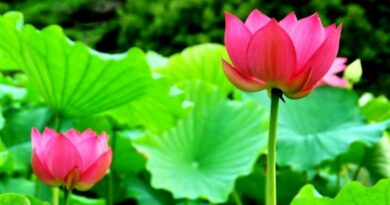Division Iii –– Khandhaka Book 24 –– Okkanti Saṃyutta Chapter 1 –– Cakkhu Vagga
Sutta Pitaka
Saṃyutta Nikāya
Division III –– Khandhaka
Book 24 –– Okkanti Saṃyutta
Chapter 1 –– Cakkhu Vagga
Namo tassa bhagavato arahato sammā sambudhassa
24. 1. 1
(1) Cakkhu –– The eye
1. I heard thus. At one time the Blessed One was living in the monastery offered by Anāthapiṇḍika in Jeta’s grove in Sāvatthi.
2. The Blessed One addressed the monks from there:
3. “Monks, the eye is impermanent, changes for the worse, and takes a different course of action. The ear is impermanent, changes for the worse, and takes a different course of action. The nose is impermanent, changes for the worse, and takes a different course of action. The tongue is impermanent, changes for the worse, and takes a different course of action. The body is impermanent, changes for the worse, and takes a different course of action. The mind is impermanent, changes for the worse, and takes a different course of action.
4. “Monks, if anyone takes faith and is settled in these things, it is said he lives in conformity with faith, has entered the righteous way, the way of Great Beings, has gone beyond the field of ordinary man, and it is not possible that he is doing actions that lead to hell, the animal womb, or the sphere of ghosts be born there. It is not possible that he should die without realizing the fruits of entry in the stream of the Teaching.
5. “Monks, if anyone is wise to think moderately about these things, it is said he lives in conformity with the Teaching, has entered the righteous way, the way of Great Beings, has gone beyond the field of ordinary man, and it is not possible that he is doing actions that lead to hell, the animal womb, or the sphere of ghosts be born there. It is not possible that he should die without realizing the fruits of entry in the stream of the Teaching.
6. “Monks, if anyone knows and sees these things, it is said, has entered the stream of the Teaching, would not fall from there and would aim enlightenment.”
24. 1. 2.
(2) Rūpa –– Forms
1. I heard thus. At one time the Blessed One was living in the monastery offered by Anāthapiṇḍika in Jeta’s grove in Sāvatthi.
2. The Blessed One addressed the monks from there:
3. “Monks, forms are impermanent, change for the worst and take a different course of action. Sounds are impermanent, change for the worse, and take a different course of action. Scents are impermanent, change for the worse, and take a different course of action. Tastes are impermanent, change for the worse, and take a different course of action. Touches are impermanent, change for the worse, and take a different course of action. Ideas are impermanent, change for the worse, and take a different course of action.
4. “Monks, if anyone takes faith and is settled in these things, it is said he lives in conformity with faith, has entered the righteous way, the way of Great Beings, has gone beyond the field of ordinary man, and it is not possible that he is doing actions that lead to hell, the animal womb, or the sphere of ghosts be born there. It is not possible that he should die without realizing the fruits of entry in the stream of the Teaching.
5. “Monks, if anyone is wise to think moderately about these things, it is said he lives in conformity with the Teaching, has entered the righteous way, the way of Great Beings, has gone beyond the field of ordinary man, and it is not possible that he is doing actions that lead to hell, the animal womb, or the sphere of ghosts be born there. It is not possible that he should die without realizing the fruits of entry in the stream of the Teaching.
6. “Monks, if anyone knows and sees these things, it is said, has entered the stream of the Teaching, would not fall from there and would aim enlightenment.”
24. 1. 3
(3) Viññaṇaṃ –– Consciousness
1. I heard thus. At one time the Blessed One was living in the monastery offered by Anāthapiṇḍika in Jeta’s grove in Sāvatthi.
2. The Blessed One addressed the monks from there:
3. “Monks, eye-consciousness is impermanent, changes for the worse, and takes a different course of action. Ear-consciousness is impermanent, changes for the worse, and takes a different course of action. Nose-consciousness is impermanent, changes for the worse, and takes a different course of action Tongue-consciousness is impermanent, changes for the worse, and takes a different course of action. Body-consciousness is impermanent, changes for the worse, and takes a different course of action. Mind-consciousness is impermanent, changes for the worse, and takes a different course of action.
4. “Monks, if anyone takes faith and is settled in these things, it is said he lives in conformity with faith, has entered the righteous way, the way of Great Beings, has gone beyond the field of ordinary man, and it is not possible that he, doing actions that lead to hell, the animal womb, or the sphere of ghosts be born there. It is not possible that he should die without realizing the fruits of entry in the stream of the Teaching.
5. “Monks, if anyone is wise to think moderately about these things, it is said he lives in conformity with the Teaching, has entered the righteous way, the way of Great Beings, has gone beyond the field of ordinary man, and it is not possible that he is doing actions that lead to hell, the animal womb, or the sphere of ghosts be born there. It is not possible that he should die without realizing the fruits of entry in the stream of the Teaching.
6. “Monks, if anyone knows and sees these things, it is said, has entered the stream of the Teaching, would not fall from there and would aim enlightenment.”
24. 1. 4
(4) Phasso –– Contact
1-3. Sāvatthi:
”Monks, eye-contact is impermanent, changes for the worse, and takes a different course of action. Ear-contact is impermanent, changes for the worse, and takes a different course of action. Nose-contact is impermanent, changes for the worse, and takes a different course of action Tongue-contact is impermanent, changes for the worse, and takes a different course of action. Body-contact is impermanent, changes for the worse, and takes a different course of action. Mind-contact is impermanent, changes for the worse, and takes a different course of action.
4-6. “Monks, if anyone takes faith and is settled in these things, it is said he lives in conformity with faith, has entered the righteous way, the way of Great Beings, has gone beyond the field of ordinary man, and it is not possible that he is doing actions that lead to hell, the animal womb, or the sphere of ghosts be born there. It is not possible that he should die without realizing the fruits of entry in the stream of the Teaching.
5. “Monks, if anyone is wise to think moderately about these things, it is said he lives in conformity with the Teaching, has entered the righteous way, the way of Great Beings, has gone beyond the field of ordinary man, and it is not possible that he is doing actions that lead to hell, the animal womb, or the sphere of ghosts be born there. It is not possible that he should die without realizing the fruits of entry in the stream of the Teaching.
6. “Monks, if anyone knows and sees these things, it is said, has entered the stream of the Teaching, would not fall from there and would aim enlightenment.”
24. 1. 5
(5)Vedanāya –– Feelings born of Contact
1-3. Sāvatthi
“Monks, feelings born from eye-contact are impermanent, change for the worst and take a different course of action. Feelings born from ear-contact are impermanent, change for the worse, and take a different course of action. Feelings born from nose-contact are impermanent, change for the worse, and take a different course of action. Feelings born from tongue-contact are impermanent, change for the worse, and take a different course of action. Feelings born from body-contact, are impermanent, change for the worse, and take a different course of action. Feelings born from mind-contact are impermanent, change for the worse, and take a different course of action.
4-6. “Monks, if anyone takes faith and is settled in these things, it is said he lives in conformity with faith, has entered the righteous way, the way of Great Beings, has gone beyond the field of ordinary man, and it is not possible that he is doing actions that lead to hell, the animal womb, or the sphere of ghosts be born there. It is not possible that he should die without realizing the fruits of entry in the stream of the Teaching.
Monks, if anyone knows and sees these things, it is said, has entered the stream of the Teaching, would not fall from there and would aim enlightenment.”
24. 1. 6
6. Saññā –– Perceptions
1-3. Sāvatthi.
“Monks, perceptions of forms are impermanent, change for the worst and take a different course of action. Perceptions of sounds are impermanent, change for the worse, and take a different course of action. Perceptions of scents are impermanent, change for the worse, and take a different course of action. Perceptions of tastes are impermanent, change for the worse, and take a different course of action. Perceptions of touch are impermanent, change for the worse, and take a different course of action. Perceptions of ideas are impermanent, change for the worse, and take a different course of action.
4. “Monks, if anyone takes faith and is settled in these things, it is said he lives in conformity with faith, has entered the righteous way, the way of Great Beings, has gone beyond the field of ordinary man, and it is not possible that he is doing actions that lead to hell, the animal womb, or the sphere of ghosts be born there. It is not possible that he should die without realizing the fruits of entry in the stream of the Teaching.
5. “Monks, if anyone is wise to think moderately about these things, it is said he lives in conformity with the Teaching, has entered the righteous way, the way of Great Beings, has gone beyond the field of ordinary man, and it is not possible that he is doing actions that lead to hell, the animal womb, or the sphere of ghosts be born there. It is not possible that he should die without realizing the fruits of entry in the stream of the Teaching.
6. “Monks, if anyone knows and sees these things, it is said, he has entered the stream of the Teaching, would not fall from there and would aim enlightenment.”
24. 1. 7.
(7) Cetanā –– Intentions
1-3. … re … .
“Monks, intentions born from forms are impermanent, change for the worse, and take a different course of action. Intentions born from hearing sounds are impermanent, change for the worse, and take a different course of action. Intentions born from scents are impermanent, change for the worse, and take a different course of action. Intentions born from tastes are impermanent, change for the worse, and take a different course of action. Intentions born, from experiencing touches are impermanent, change for the worse, and take a different course of action. Intentions born from ideas are impermanent, change for the worse, and take a different course of action.
4. “Monks, if anyone takes faith and is settled in these things, it is said he lives in conformity with faith.
5. “Monks, if anyone is wise to think moderately about these things, it is said he lives in conformity with the Teaching.
6. “Monks, if anyone knows and sees these things, it is said, he has entered the stream of the Teaching, would not fall from there and would aim enlightenment.”
24. 1. 8.
(8) Taṇhā –– Craving
1-3. … re … .
“Monks, craving for forms is impermanent, changes for the worse, and takes a different course of action. Craving for sounds is impermanent, changes for the worse, and takes a different course of action. Craving for scents is impermanent, changes for the worse, and takes a different course of action. Craving for tastes is impermanent, changes for the worse, and takes a different course of action. Craving for touches is impermanent, changes for the worse, and takes a different course of action. Craving for ideas is impermanent, changes for the worse, and takes a different course of action.
4. “Monks, if anyone takes faith and is settled in these things, it is said he lives in conformity with faith … re …
5. “Monks, if anyone is wise to think moderately about these things, it is said he lives in conformity with the Teaching. … re …
6. “Monks, if anyone knows and sees these things, it is said, he has entered the stream of the Teaching, would not fall from there and would aim enlightenment.”
24. 1. 9.
9. Dhātu –– Elements
1-3. Sāvatthi.
“Monks, the earth element is impermanent, changes for the worse, and takes a different course of action. The water element is impermanent, changes for the worse, and takes a different course of action. The fire element is impermanent, changes for the worse, and takes a different course of action. The air element is impermanent, changes for the worse, and takes a different course of action. The space element is impermanent, changes for the worse, and takes a different course of action.
4-6. “Monks, if anyone takes faith and is settled in these things, it is said he lives in conformity with faith. … re …
5. “Monks, if anyone is wise to think moderately about these things, it is said he lives in conformity with the Teaching. … re …
6. “Monks, if anyone knows and sees these things, it is said, has entered the stream of the Teaching, would not fall from there and would aim enlightenment.”
24. 1. 10.
10. Khandhena –– With the Masses
1-3. Sāvatthi.
“Monks, matter is impermanent, changes for the worse, and takes a different course of action. Feelings are impermanent, change for the worse, and take a different course of action. Perceptions are impermanent, change for the worse, and take a different course of action. Intentions are impermanent, change for the worse, and take a different course of action. Consciousness is impermanent, changes for the worse, and takes a different course of action.
4. “Monks, if anyone takes faith and is settled in these things, it is said he lives in conformity with faith, has entered the righteous way, the way of Great Beings, has gone beyond the field of ordinary man, and it is not possible that he is doing actions that lead to hell, the animal womb, or the sphere of ghosts be born there. It is not possible that he should die without realizing the fruits of entry in the stream of the Teaching.
5. “Monks, if anyone is wise to think moderately about these things, it is said he lives in conformity with the Teaching, has entered the righteous way, the way of Great Beings, has gone beyond the field of ordinary man, and it is not possible that he is doing actions that lead to hell, the animal womb, or the sphere of ghosts be born there. It is not possible that he should die without realizing the fruits of entry in the stream of the Teaching.
6. “Monks, if anyone knows and sees these things, it is said, has entered the stream of the Teaching, would not fall from there and would aim enlightenment.”







